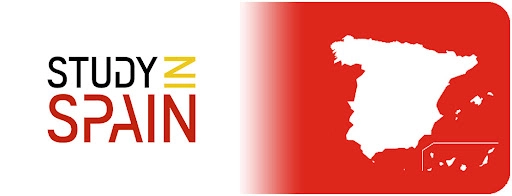
Top MFin Colleges in Spain
MFin Colleges in Spain: A SnapshotThinking about getting your Master of Finance in Spain? Great choice. Spain is now on…
Table of Contents

Thinking about a career in finance? The Duke Master of Science in Finance (MSF) program might be just what you’re looking for. Offered by the Fuqua School of Business, this program is known for its academic rigor, global reputation, and excellent career outcomes.
Here’s why it stands out:
Whether you’re targeting investment banking, asset management, or financial consulting, Duke MSF sets a strong foundation for success.

Duke University enjoys a stellar reputation both nationally and internationally. Its MS in Finance program at Fuqua reflects this prestige. Let’s look at some notable rankings:
| Ranking Category | Organization | Position |
|---|---|---|
| Best U.S. Business Schools | U.S. News & World Report | Top 15 |
| Global University Ranking | QS World University Rankings | Top 50 |
| Finance Program (U.S.) | Financial Times | Top 10 |
These rankings show that Duke holds its own among elite business schools in the U.S. and beyond.
Curious how Duke stacks up against other top finance programs? Check out this comparison:
| University | MS in Finance Rank | Program Duration | STEM-Designated |
|---|---|---|---|
| MIT (Sloan) | #1 | 12 months | ✅ Yes |
| Princeton | Top 5 | 10 months | ✅ Yes |
| Duke (Fuqua) | Top 10 | 10 months | ✅ Yes |
| NYU (Stern) | Top 10 | 12 months | ✅ Yes |
Duke’s MSF program is not just fast-paced, it’s globally respected and competitively ranked.
Duke’s MS in Finance program blends academic rigor with practical skills. The curriculum is structured to build a solid finance foundation while allowing flexibility through electives.
Here are the core courses every student takes:
| Core Course | What It Covers |
|---|---|
| Corporate Finance | Financial decision-making within corporations |
| Investment Analysis | Valuation of stocks, bonds, and portfolio theory |
| Financial Modeling | Excel-based model building and forecasting |
| Derivatives | Understanding options, futures, and risk management tools |
| Financial Accounting | Reading and interpreting financial statements |
These courses are designed to equip students with skills that employers in top finance sectors demand.
Students can tailor their learning by choosing from a wide array of electives. Popular specializations include:
This flexible structure allows students to align their coursework with career goals.
One standout feature is the Duke Financial Economics Center (DFEC), which enhances learning through:
DFEC is a great platform for gaining practical insights and building a resume with real-world impact.
Duke’s MS in Finance program attracts a diverse group of students from around the world. Here’s a snapshot of a typical class:
| Category | Details |
|---|---|
| Class Size | Around 100 students |
| International Students | 50%+ from various countries |
| Gender Ratio | Approximately 40% women, 60% men |
| Work Experience | 0–2 years (some with internships) |
| Academic Background | Finance, Economics, Engineering, Math |
This diversity fosters a rich learning environment where students benefit from global perspectives and collaborative learning.
Life at Duke Fuqua isn’t just about academics, there’s a vibrant community and plenty of networking opportunities. Students can:
These opportunities help students grow both personally and professionally.
Attending a top-tier school like Duke is a significant investment. Here's an estimate of what it might cost to complete the MS in Finance program:
| Expense | Estimated Cost (per year) |
|---|---|
| Tuition | $65,000 – $70,000 |
| Living Expenses | $20,000 – $25,000 |
| Books & Supplies | $2,000 |
| Health Insurance | $3,500 |
| Other Fees | $2,000 – $3,000 |
💡 Total Estimated Cost: $90,000 – $100,000 per year (including tuition and living expenses)
It’s essential to budget wisely and plan your finances early to ensure a smooth study experience.
Duke offers various scholarship opportunities to help reduce the financial burden:
📌 Good to Know: Both domestic and international students can apply. Additionally, many students consider student loans and graduate assistantships as funding options.

Duke’s MS in Finance graduates have a strong track record of landing top jobs quickly. Here's what the outcomes look like:
| Category | Details |
|---|---|
| Employment Rate | 95%+ within 6 months of graduation |
| Average Salary | $90,000 – $110,000 per year |
| Bonuses & Incentives | Up to $20,000 |
Most students secure job offers before graduation, thanks to Fuqua’s career services, on-campus recruiting, and powerful alumni network.
Graduates enter a wide range of finance roles across industries. Here are some common paths:
Many globally respected finance and consulting firms recruit from Duke’s MSF program, including:
Duke Fuqua’s reputation and alumni connections open doors to some of the most competitive roles in finance.
To apply for Duke's MMS program, applicants should meet the following criteria:
Duke's MMS program offers multiple application rounds. It's advisable to apply early, especially for international applicants requiring visas. The upcoming deadlines are:
International students needing an F-1 visa are encouraged to apply by Round 2 to ensure timely processing.
The application includes several short-answer questions and essays designed to understand your motivations and goals. Applicants are required to respond to three short-answer questions (maximum 500 characters each) and two longer essays. The specific essay prompts may vary each application cycle.
Tips for Writing Essays:
Interviews are conducted by invitation after an initial review of application materials. They are typically held via video conference, though North Carolina residents may have the opportunity for on-campus interviews.
Common Interview Questions:
Preparation Strategies:

Interestingly, Duke doesn’t have a standalone program officially titled “Master of Science in Finance (MSF)” like some other universities. Instead, it offers several finance-related graduate programs that are equally strong, industry-aligned, and STEM-designated.
| Program | Focus Area | Duration | STEM | Estimated Tuition |
|---|---|---|---|---|
| MQFE | Quantitative Financial Economics | Varies | ✅ | $60,000 – $70,000 |
| FinTech | Engineering + Finance & Technology | 12–15 months | ✅ | $50,000 – $65,000 |
| MQM: BA | Business Analytics + Finance | 10 months | ✅ | $70,000 – $75,000 |
